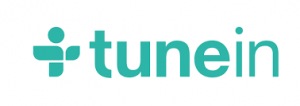Building a top-notch intern program doesn’t simply mean hiring a few planning interns. Top financial advisor David Armstrong took it much further and hires creative interns too. These are students who major in the creative fields and can build a portfolio of work at David’s firm while David gets to stay on the leading edge of marketing and social media.
No two paths to financial services are the same, but David Armstrong’s was particularly unique. As he served overseas in the Marine Corps, David couldn’t spend any of his money. But he could invest it. So he taught himself the ins and outs of managing money, and by the time he left the service, his ROI was, “along with a few bucks in cash as a bouncer, good enough to pay for an MBA, a new car, and two years of living expenses.”
David also credits an internship with providing crucial real-world experience that eased his transition into our industry. So it’s no surprise that his own company has a robust internship program that attracts students who, like David, might be approaching financial advisory from unconventional angles.
David Armstrong is the President and Co-Founder of Monument Wealth Management. In this conversation, David and I are joined by some of his team members and a current intern to discuss Monument’s unique approach to its internship program, succession planning, and lessons from the Marine Corps that David has used to build a successful independent RIA.
How does jumping out of airplanes apply to managing clients’ money? Listen to find out!
To continue reading the rest of this post, please register below with your email address.
Quotes from David Armstrong
– Teach your interns what they can’t learn in a classroom. “When I got out of the Marine Corps and went back to get my MBA, I did an internship between my first and second year in graduate school at a two-billion-dollar equity shop. Looking back on it, they probably didn’t give me anything that I could have really screwed up, but I felt it was a really great experience. And what it taught me was all of the things about business and finance and the industry that I wasn’t going to learn sitting in a classroom. Those can be things that are as simple as how do you appropriately email somebody? How do you fax somebody? How do you answer the phone? What does report routing look like? I really got a feel for what it was like to actually work in the industry and be around professionals who had upwards of 20 years of experience. My internship was really the catalyst for me ending up where I am today. I want to pay it back and make sure that I give other people the opportunity to do that as well.”
– Identify what your RIA needs besides office support. “When a lot of my colleagues and peers think about internships, they think, ‘I want to bring in some students who are really interested in finance.’ And that’s a natural thing to think about. But we started looking at it from a different side and we said, ‘How can we leverage some of these really smart people on the creative side to come in and trade them experience and work product that they do for us in exchange for them having a portfolio of real work that they can then go out and show to a potential employer when they graduate?’ And so what we get out of that is we don’t have to go out and hire a graphic designer to do contract work for us, and what the intern gets out of it is a great portfolio of real-world product.”
– The triple-A internship candidates will knock on your door early. “If you’re a potential intern looking to do something in this industry, you need to get on the ball quickly. We hire passion. Somebody who is really passionate about working here and working in this industry, they’re calling us in January and February for our summer internships. The people who are calling us three weeks before the internship season starts, they’re really at a disadvantage there because people who are really passionate about working here have already beaten them to the punch. So my general service announcement is, take a look at when an internship starts and apply early.”
– Be proud of interns who find jobs elsewhere. “I’m really proud of the fact that many of our interns end up working for competitors or in other industries, like entertainment. We actually wear that as a badge of honor, and that goes back to our responsibility in the industry to give people great experiences so they can go out and do what they’re passionate about and work in an area that they’re passionate about living in.”
– Simplify your succession planning. “Our path to partnership came up because we have an indebtedness to our clients, the people that we’ve been helping out forever. But the reality of the situation is as they’re marching closer and closer to retirement, quite frankly, so am I. So we have a responsibility to make sure that Monument continues to grow and groom people that can be here at Monument to continue to help people when they need help the most, which is, as they enter retirement. So we looked at creating a plan that allows everybody to go through a path for advancement and that allows them to prove to us that they are ready to enter into a path to partnership, which is actually the process of becoming an equity owner and a partner in the LLC. It’s not something that you need to create start to finish in one fell swoop. I think if you just keep creating your succession plan on a leading 12-month basis, you will inherently create a path to partnership just by looking at what the next year entails. It’s not quite as daunting as everybody thinks it needs to be.”
– Set clear annual goals and make sure your team buys in. “At the beginning of the year, my business partner and I outline our annual strategic objectives, and we publish those to everybody in the firm. We say, ‘Here are the things that we think are most important for this calendar year for us to achieve.’ And then from that, each individual team member creates their own set of goals and comes back and negotiates with us on what goals they want to do and does it fit or does it not fit into what we feel are the annual strategic objectives. Once those goals are solidified and agreed upon, we have 90 day check-ins.”
– Commit to a checklist mentality. “I was a jump master in the Marine Corps, which meant that after I became a basic parachutist, I then trained to be the person who could rig the aircraft for combat, for jump operations, could inspect everybody to make sure that their gear was on correctly and actually run the airborne operation of putting people safely out the door. The checklist mentality that is associated with conducting airborne operations is so applicable to the checklist mentality that needs to exist inside a financial advisory practice. As a jump master, there are procedures that you go through, there are checklists that you go through, they are never deviated and they’re never skipped. Those checklists are written in blood, figuratively. What we do as advisors is very serious business, and missing something can cost a lot of money. That’s a really serious lesson that I took away from the Marine Corps.”
Resources
– Monument Wealth Management Visit David Armstrong and his team online.
– David Armstrong on Social Media
LinkedIn: https://www.linkedin.com/in/davidbarmstrong/
Twitter: @DavidBArmstrong
– Monument Wealth on Social Media
Twitter: @monumentwealth
Facebook: https://www.facebook.com/MonumentWealthManagement/
LinkedIn: https://www.linkedin.com/company/monument-wealth-management/
Youtube: https://www.youtube.com/user/MonumentWealth
– “The Checklist Manifesto” by Atul Gawande Reading this book and writing an executive summary is a requirement for any Monument employee who wants to complete level one of the company’s path for advancement.
– “Creativity, Inc.” by Ed Catmull David Armstrong recommends this book by one of Pixar’s co-founders as a way to absorb some unconventional management lessons from outside our industry.
– The ROL Index A tool Mitch Anthony and I developed to help advisors measure their clients’ well-being in 10 aspects of life.
– Values Clarification Toolkit Click here to download this FREE tool and start living your values.









